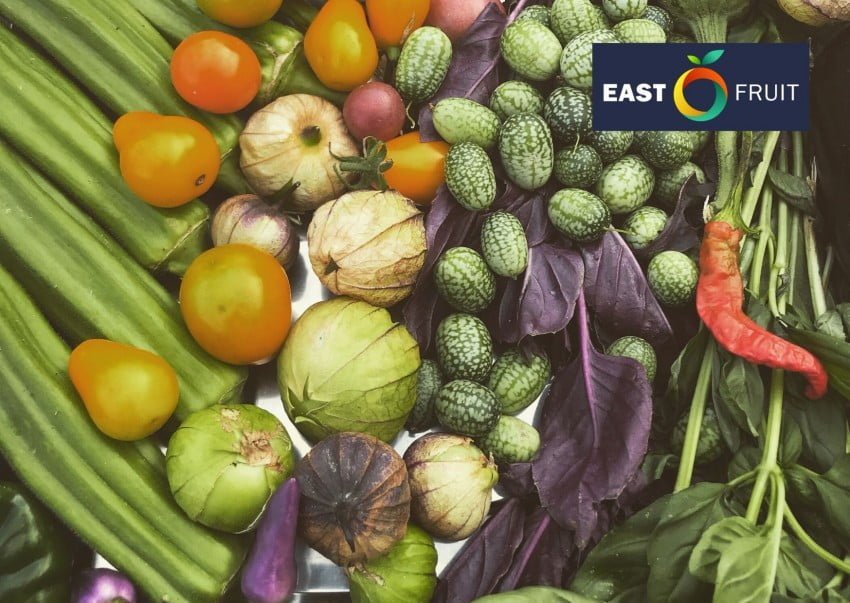The Ukrainian company “Stodola” in the Mykolaiv region of Ukraine grows exotic vegetables unusual for the country, such as watermelon cucumber, scorzonera, horned cucumber Kiwano, kohlrabi and chard, truffle potatoes, purple pepper, various baby vegetables, and also produces preservation. All products are certified by European certificates according to the Organic Standart system.
EastFruit talked to the founder of the company, Jan Ostrovsky, to find out about the production of exotic vegetables in Ukrainian climatic conditions, where the company sells its products, and what it intends to bet on in the future.
“Our main task for today is to develop technologies for growing niche crops”.
– Jan, tell me how your business began. Which crops do you grow today and where?
– We have been engaged in the vegetable business for 5 years. Previously, this was my hobby, which later grew into a business. I like the process itself: from the idea to plant something and ending with the receipt of the finished product. I like the fast dynamics of this business – within 3-4 months you get the result, the crop, and then the final product. This is what attracts the most.
Our crop area is constantly changing. Right now under “niche” or so-called exotic vegetables, about 3 hectares are allotted to us. In addition, we have a separate greenhouse with an area of about 600 square meters, where we grow seedlings of various exotic crops.
We grow more than 30 exotic vegetable crops. If we talk about the most “niche” of them, then this is a watermelon and spikelet cucumber kiwano, black root – scorzonera, kohlrabi, chard, and different varieties of peppers. We also have truffle potatoes. In this culture, we can not yet reach an acceptable level of productivity. Therefore, so far we are engaged in its reproduction and are studying the cultivation technology in detail.
At the same time, we do not go into large volumes of production, since at this stage we are developing technologies. For example, the studded cucumber kiwano in our conditions builds up a large green mass, but does not bloom and does not produce fruit. To achieve its fruiting, as it turned out in practice, is quite difficult. Therefore, so far we are testing various technologies in order to obtain fruiting in an industrial volume.
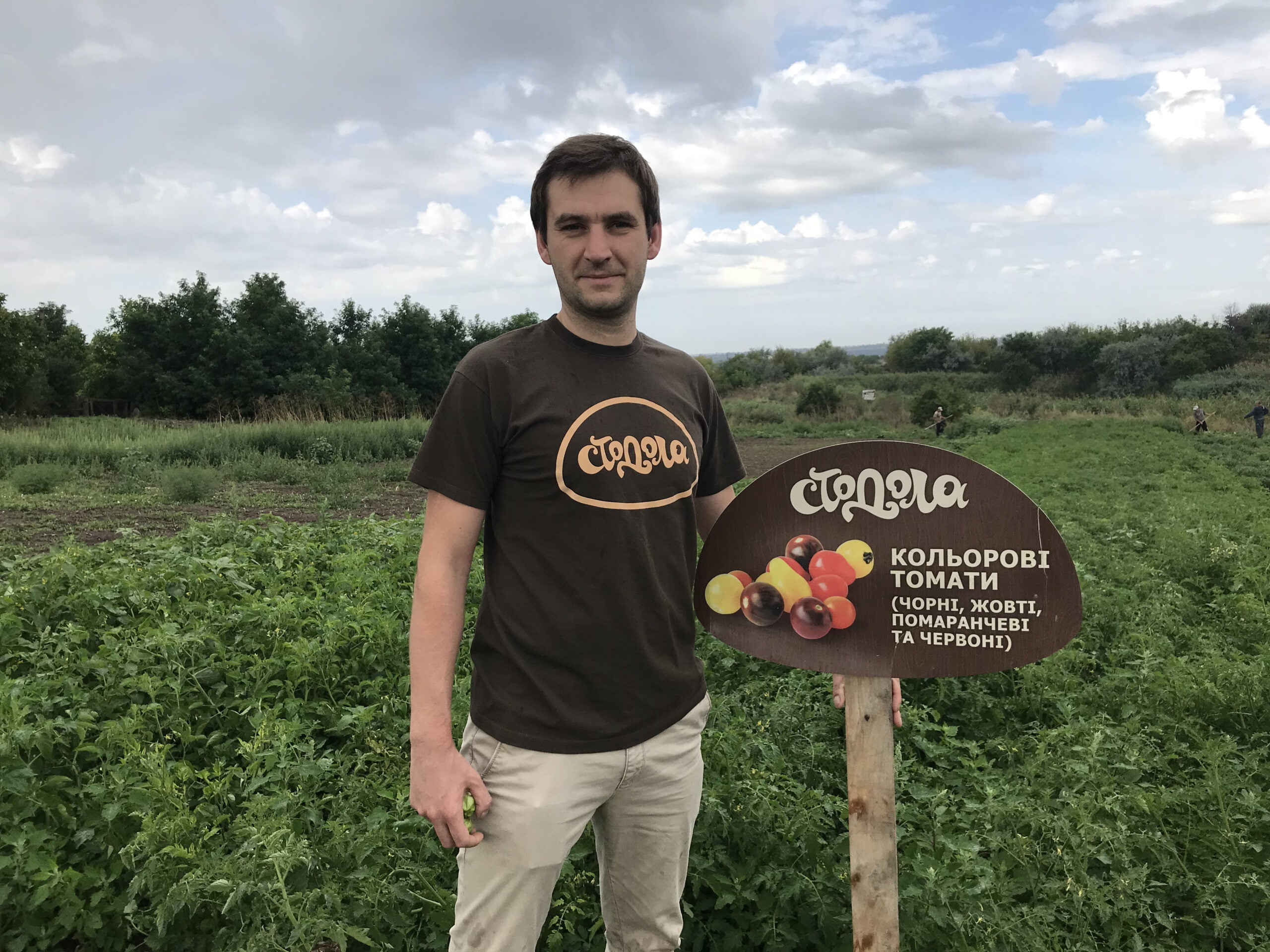 N.B. EastFruit. Central America, New Zealand, and Israel are regions where horned cucumber is the most widely cultivated. Outwardly, the kiwano resembles a huge overripe cucumber with spikes. In length, the vegetable reaches an average of 15 cm. The peel is solid and inedible. The pulp is green, with a consistency reminiscent of jelly. The culture is whimsical, while drought and waterlogging are equally destructive for it. African horned cucumber is one of the few exotic vegetables that is used in food in almost any form, including pickled. Kiwano fruits are consumed in salt form (for salads) or in sweet, as a vitamin supplement to jams and desserts. High potassium levels have a positive effect on heart function. Freshly squeezed horned cucumber juice is useful for dietary nutrition.
N.B. EastFruit. Central America, New Zealand, and Israel are regions where horned cucumber is the most widely cultivated. Outwardly, the kiwano resembles a huge overripe cucumber with spikes. In length, the vegetable reaches an average of 15 cm. The peel is solid and inedible. The pulp is green, with a consistency reminiscent of jelly. The culture is whimsical, while drought and waterlogging are equally destructive for it. African horned cucumber is one of the few exotic vegetables that is used in food in almost any form, including pickled. Kiwano fruits are consumed in salt form (for salads) or in sweet, as a vitamin supplement to jams and desserts. High potassium levels have a positive effect on heart function. Freshly squeezed horned cucumber juice is useful for dietary nutrition.
– What other interesting crops do you grow?
– For example, last year we planted the first batch of scorzonera or, as it is called in another way, black root. This year we have made the emphasis on collecting seed material. The fact is that in order to plant, for example, 5 ha of the black root, you need to study the cultivation technology thoroughly in order to harvest a good crop in the future. Therefore, our main task for today is the development of such technologies. We need to know how to grow, fertilize, and control plant pests.
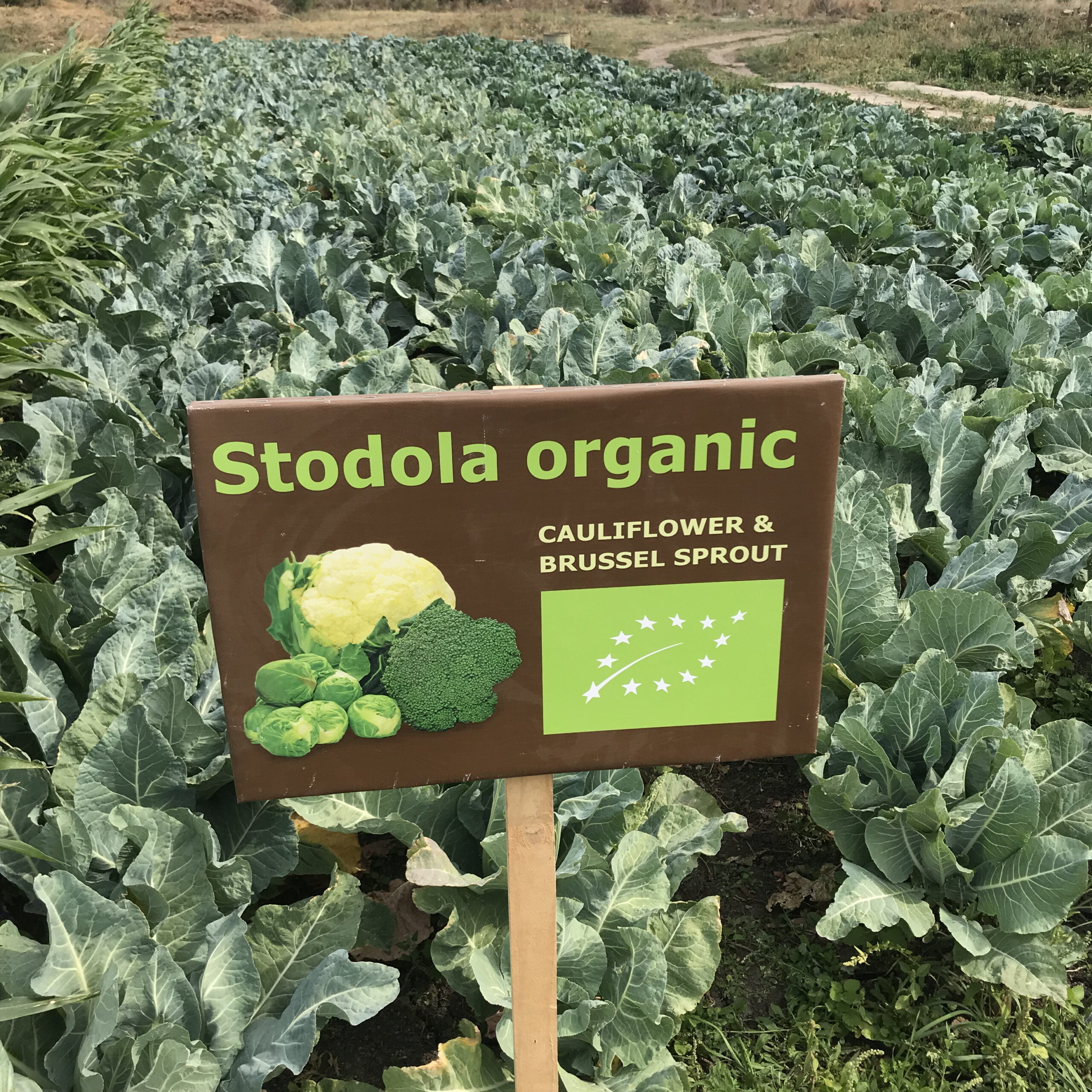 – What are the biggest problems that you had to face in the process of adaptation of exotic vegetable crops to Ukrainian conditions?
– What are the biggest problems that you had to face in the process of adaptation of exotic vegetable crops to Ukrainian conditions?
– The biggest problem is the development of a technological map of the conditions of organic farming. It should be borne in mind that our climate is not always suitable for such crops. At the same time, there are cultures for which the sun is necessary for large quantities. For example, these are the watermelon cucumber and the kiwano cucumber that I have already mentioned. We understand that the weather is unpredictable, therefore it is necessary to minimize risks. In particular, until temperatures rise, we try to keep seedlings of crops in our greenhouse, and we plant in the open ground later.
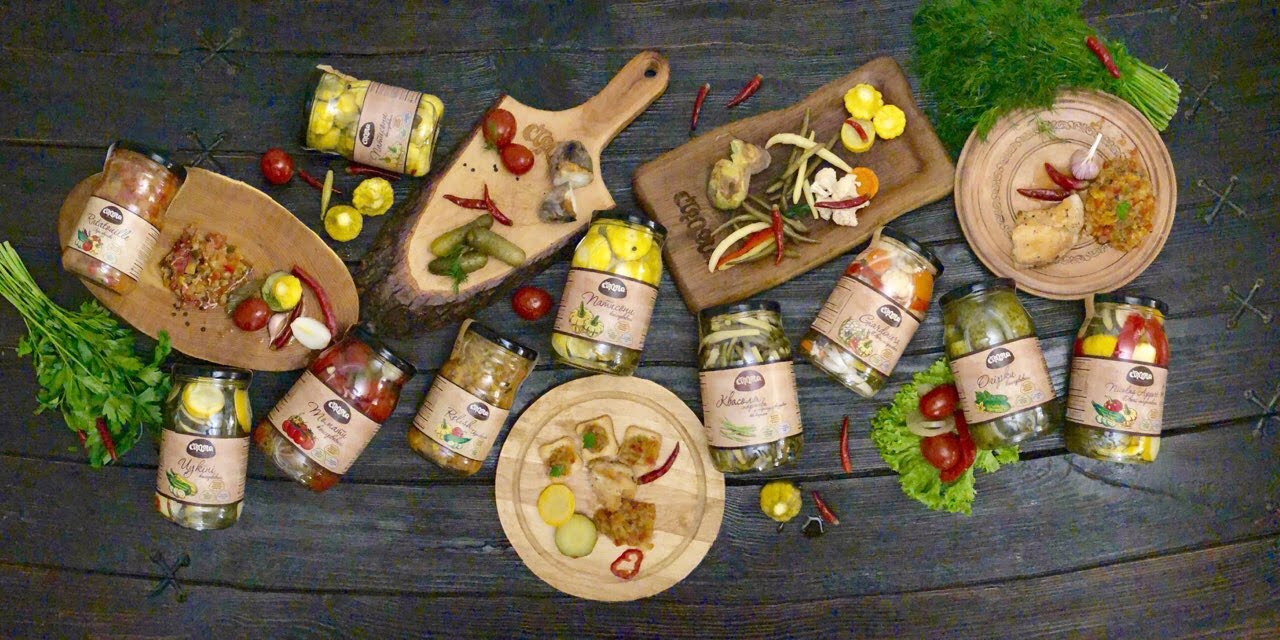 – Your company is engaged exclusively in the production of organic products. Why did you decide to bet on it?
– Your company is engaged exclusively in the production of organic products. Why did you decide to bet on it?
– We have a small production. Based on this, it is difficult for us to compete with large manufacturers. Therefore, we decided to choose for ourselves the direction of production of the final organic product (3 hectares of land certified Organic Standart), which we ourselves grow and process. As the practice of our business has shown, the niche direction of the craft product is more competitive. At the same time, we work both in the domestic, fairly small market and in the organic markets of European countries.
 Speaking in the context of promoting our products to export markets, we attach great importance to participation in specialized exhibitions. Over the past few years, we have taken part in 4 such events. In particular, these are such well-known exhibitions as BioFach and Anuga. Based on the results of participation in such events, we received feedback from the client, importers from various countries contacted us, who, having familiarized with our product line, talked about their segments of interest.
Speaking in the context of promoting our products to export markets, we attach great importance to participation in specialized exhibitions. Over the past few years, we have taken part in 4 such events. In particular, these are such well-known exhibitions as BioFach and Anuga. Based on the results of participation in such events, we received feedback from the client, importers from various countries contacted us, who, having familiarized with our product line, talked about their segments of interest.
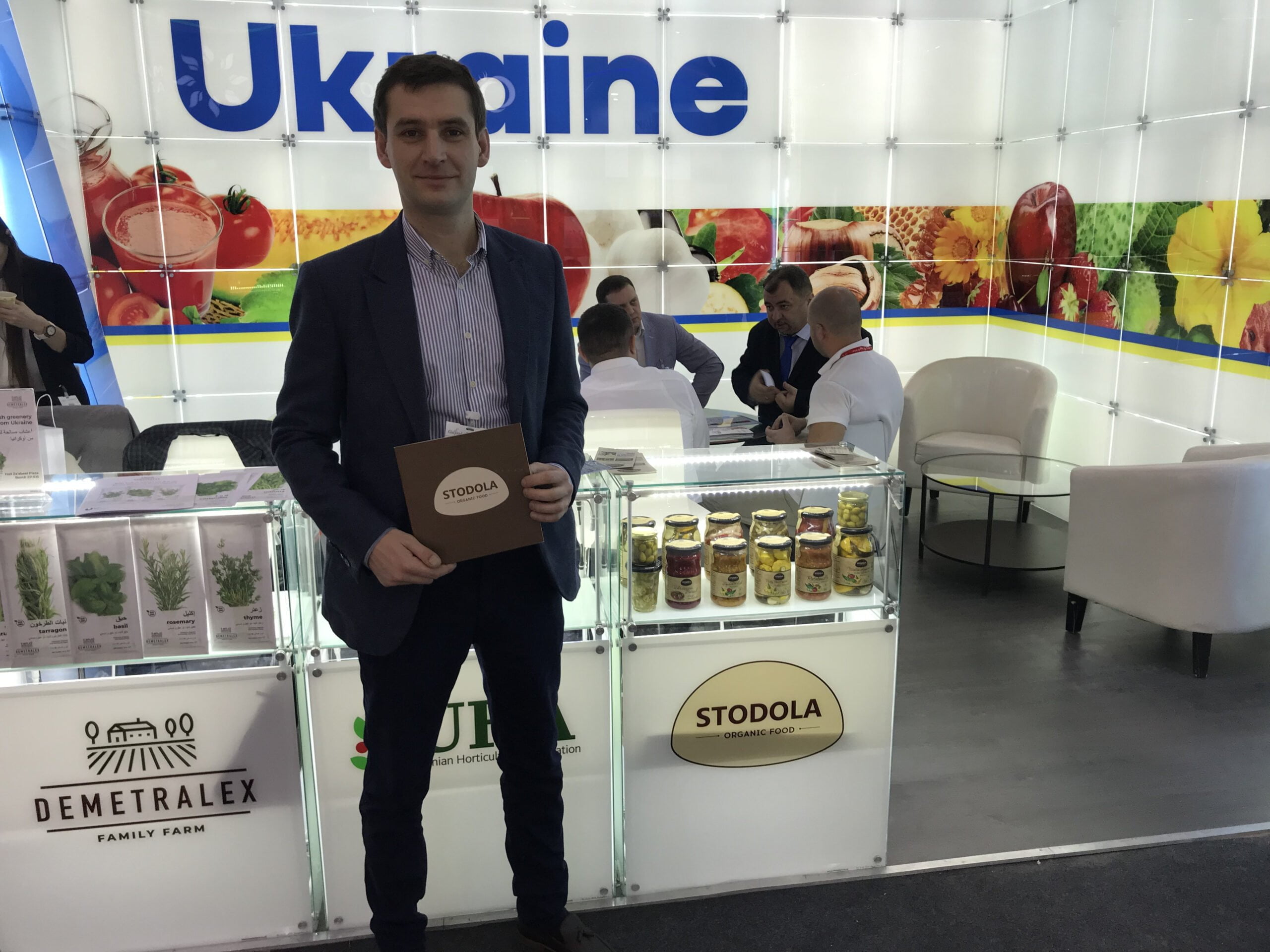 As for export markets, participating in various exhibitions, we saw that the most interesting is the watermelon cucumber. In particular, German companies are ready to buy it. Various types of purple, orange pepper in the pickled form are also popular.
As for export markets, participating in various exhibitions, we saw that the most interesting is the watermelon cucumber. In particular, German companies are ready to buy it. Various types of purple, orange pepper in the pickled form are also popular.
Participation in exhibitions helps us in choosing a further vector for the development of the company. Having preliminary agreements and proven technologies, we can immediately provide specific customers with the necessary volumes of a particular product, and in the future, we can grow vegetable crops directly under their order. This year we are launching our product processing workshop. With the help of it, we will process our cultures and then we will provide trial lots to each interested client on the basis of which, in the future, we will form a portfolio of orders for our company.
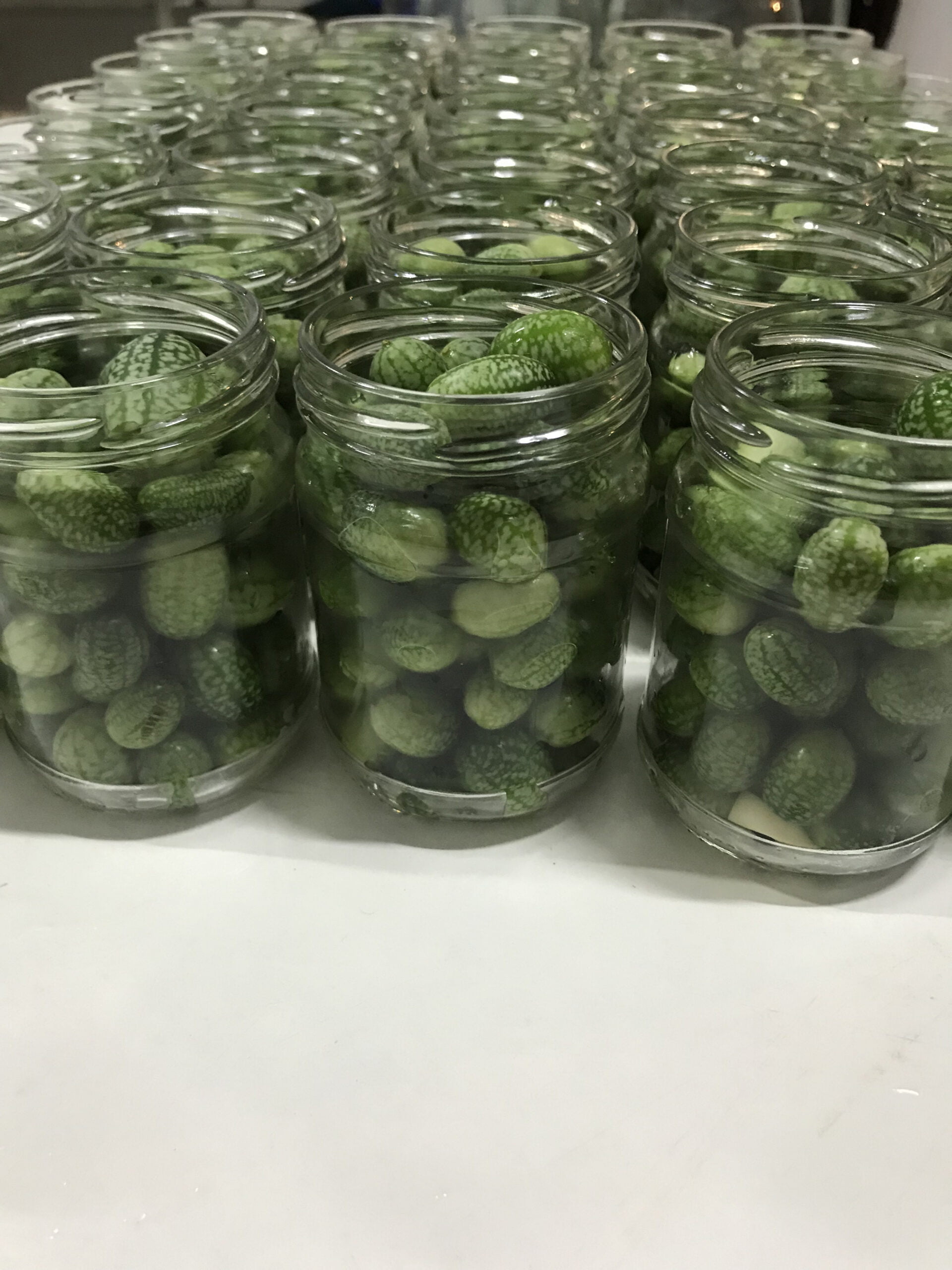 – Tell us more about the processing industry of your company.
– Tell us more about the processing industry of your company.
– Today we produce pickled vegetables, vegetables in the form of snacks, vegetable purees, sauces, and vegetable drinks. This year we also plan to launch the production of snacks in the form of vegetable chips. For this, we planted a special black variety of corn. This is a niche product for a narrow consumer segment. Nevertheless, there is a demand for it, and we want to satisfy it.
– The company “Stodola” has already occupied its niche in the domestic market in the production of exotic vegetables, as well as processed products from them. What retail chains do you work with?
– We work with such Ukrainian trading networks as Silpo, Auchan, and Good Wine. By cultivating niche cultures, we simultaneously form a culture of their consumption and increase consumer awareness of a variety of products.
We measure our production volume by tens of thousands of cans. On average, one can consume one kilogram of products. That is, if we say that we have issued 50 thousand cans, then, therefore, we processed 50 tons of products. This is a small amount for the market. Next year, our company plans to increase the volume to one million cans. In the future, in order to increase production, it will be necessary to engage in attracting an external investor.
– When does the company start and end the production cycle?
– It begins in March with planting seedlings in greenhouses. We finish in August-September after the completion of the product verification process for compliance with all necessary quality requirements. In the remaining six months, we are engaged in marketing issues such as sales, promotion, search for markets for the sale of our products.
– How did the current situation related to difficult weather conditions, the introduction of a quarantine regime due to the COVID-19 pandemic, and a drop in consumer demand in your business affect you?
– We did not feel any significant decline in sales. Since our products have a long shelf life, on the contrary, during quarantine, their sales volumes increased. In such a situation, it was convenient for people to purchase them in conditions of limited shopping trips. In addition, our products are sold in the middle price segment, where the listed problems are not felt as strongly as in the case of budget-category products.
We also launch a new, modern product processing workshop. So far we are talking about the company’s own funds. Perhaps next year, when we receive export contracts for the supply of large volumes of our products, we will search for external investors, because we will need large working capital.
“Deciding to enter this business, you should not think about the profit in first years”.
– What amounts are we talking about when it comes to commissioning such a processing plant?
– The price depends on the choice of equipment. You can buy a new Italian line, or you can implement previously used equipment. To start a workshop that meets the requirements of HACCP, you need to invest from $ 100 000. This is the base amount, from which it is worth starting from those who want to implement such a project.
– How profitable is the business now?
– If we talk about the organic segment as a whole, then in the world it is developing much faster than in Ukraine. Nevertheless, the development of the organic sector also exists in Ukraine. If we talk about the profitability of a business, then it depends on many factors. Our company has not yet reached profit, as it invests all the time in the development of its production. In my opinion, one who decides to enter the produce business should not think about profit in the first years.
– What are the forecasts for the development of your niche business in the near future?
– We are optimistic about the future. If we talk about EU countries, the market there is very promising and fast-growing. Plus, its development is stimulated at the legislative level. In particular, we are focused on working with German partners. In this market, we already have certain achievements. We are also interested in the UK market and the Scandinavian countries due to the high consumption of organic products, while domestic production is not able to fully satisfy consumer demand. We also have agreements on the supply of products to the UAE market. But the main question for us today is not even the channels of implementation, but the establishment of technology and the achievement of an acceptable production cost for us.
– Recently EastFruit noted that you published a post published on Facebook searching for fruit and vegetable farmers to cooperate with. Tell us in more detail what kind of cooperation are you interested in.
– There is a number of products that we do not currently grow. For example, berries. The same applies to components such as sugar and sunflower oil we need for production. Moreover, we need such products only in organic quality. Based on this, we started looking for partners who could supply the products we need for our production. Moreover, we are not limited only to the search for such partners in Ukraine. For example, today we get organic spices from Poland since such products are not yet produced in Ukraine. We require organic certificates from each supplier of such ingredients for production.
– Often, premium products from the fresh market are products with high added value and are more expensive than processed products. Based on this, does the company have plans to scale up the business and grow exotic products for their subsequent sale in the fresh market?
– Yes, we’ve been thinking of such a strategy for doing business. In particular, by sorting the grown products in order to send them to the fresh market in the future. However, it must be understood that this requires additional investment in storage facilities and in equipment. I am sure that in time we will come to this.
The use of the site materials is free if there is a direct and open for search engines hyperlink to a specific publication of the East-Fruit.com website.




